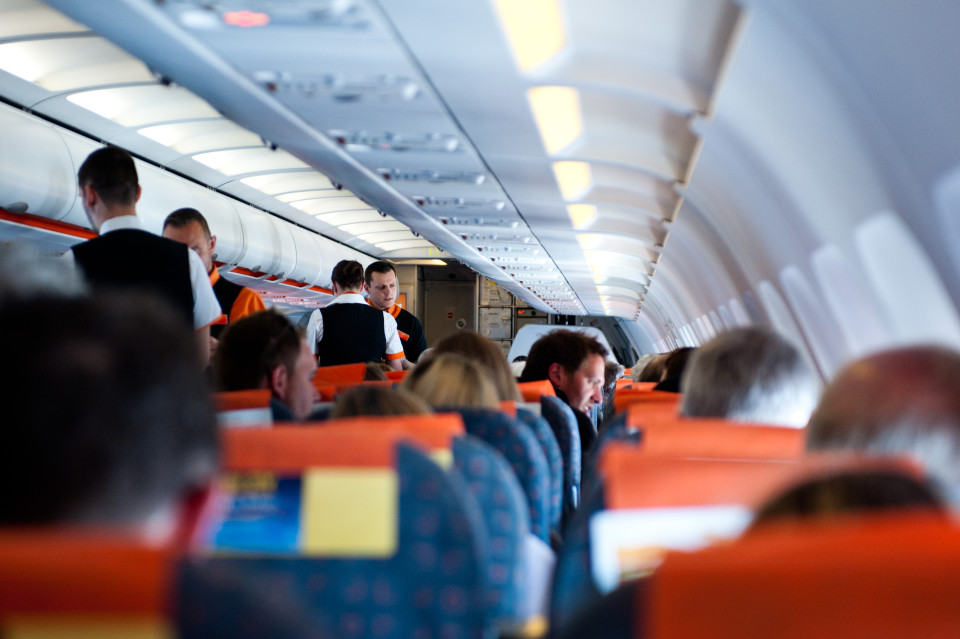Do you find yourself daydreaming of far away places? For people with a sense of adventure and a love of new experiences, a career in travel can be incredibly rewarding. But with the rise of new technology and a constantly changing economy, jobs in this area look almost nothing like they did just a couple of decades ago.
What does a career in travel look like today? Here, we’ll explore some of the most common professions in this area and how they can help you see the world.
Flight Attendant
Also known as in-flight crew member, cabin crew member, cabin attendant, air host(ess), and airline steward(ess).
Of all the careers in travel, flight attendant is probably one of the most people-focused. These friendly professionals are the face of the airline industry, responsible for ensuring passengers are safe and comfortable for the duration of their flight. You may remember them from the last time you traveled—perhaps more for the drink cart in front of them than for their personality.
But flight attendants do much more than people assume. In addition to providing basic customer service, they also secure the plane during takeoff, landing, and bouts of turbulence, and assist in emergency situations when they occur by leading evacuations, administering first aid, and even doing some firefighting. Maintaining a pleasant disposition is important in this career, but it’s really only the tip of the iceberg.
What are the perks of being a flight attendant?
Many people enter this career because they love to travel. And, for those with wanderlust, that’s probably the best part of the job: flight attendants literally get paid to fly. Airlines provide staff with free accommodation on long haul flights, plus, in most cases, a daily food allowance, so long-haul flights can essentially become mini all-expenses-paid vacations. There may only be a little bit of extra time to explore the destination between landing and takeoff, but it’s still an incredible way to see the world.
Other perks include the downtime. Although the work itself can be intense, it also involves a lot of leisure. On lengthier trips, flight attendants even get to sleep on the job! They also have more control over their schedule than people in more “typical” careers; every few weeks, attendants “bid” on all available flights to decide who flies when and where. Shifts are assigned by seniority, which means that, with enough time and experience, flight attendants can craft their dream schedule.
These perks, plus the fact that it’s possible to get hired right out of high school, makes flight attending an appealing line of work for many.
How much time do flight attendants spend away from home?
A career as a flight attendant isn’t all fun and games. Full-time attendants usually spend between 75 and 100 hours a month in the air, and another 50 hours on the ground, doing paperwork, waiting for planes, and preparing for flights. This can translate to a lot of time away from home, often working long, variable hours.
Perhaps because of the bizarre schedule, about one in four flight attendants work part-time. This option is obviously less lucrative than working full-time, but can make it easier to maintain a relatively normal lifestyle and raise a family.
Flight attendants are paid to see the world…sort of
Not only does flight attending require a lot of time away from home, it also involves a lot of unpaid work. Salaries are completely dependent on the number of hours spent in flight, so flight attendants aren’t compensated for the time they spend boarding, taxiing, or commuting to and from the airport. If a flight gets cancelled or delayed, so does the attendant’s pay.
In the US, the average salary is about $45,000. But depending on the airline, as well as the attendant’s schedule and level of experience, that number can range anywhere between $23,000 and $80,000.
Travel Agent
You’ve probably seen her before in an old movie: a smiling woman in a headset, stationed at her computer against a backdrop of faded tropical posters. But the day-to-day of today’s travel agents looks very different from what it did even ten years ago.
What do travel agents do?
At the most basic level, travel agents help simplify the trip planning process for their clients. They research fares and schedules; book flights, tours, and hotels; and advise clients on how to make the most of their time away. The specifics of their day-to-day vary a lot depending on where and for whom they work. But no matter what their focus, all travel agents share a common goal: customer satisfaction. This is a people-focused profession, committed to ensuring clients have the most pleasant, safe, and rewarding travel experiences possible.
There are two kinds of travel agents…
....each with very different lifestyles:
- Leisure travel agents work primarily with individuals, organizing everything from family vacations to honeymoon getaways. Although some of them work independently, most choose to work under a host agency. These businesses “employ” home-based agents through independent-contractor agreements, offering them services like marketing, training, and technology in exchange for a cut of their commissions.
- Corporate travel agents, on the other hand, primarily work with businesses, booking accommodation and flights for employees attending sales meetings, conferences, and more. Whereas leisure agents often work remotely on their own schedule, those in corporate positions tend to work in offices. It’s a standard 9-to-5 job, or something similar.
How do travel agents make money?
Travel agents earn their income in three ways, through commissions, service fees, and salary. Typically, vendors pay a 10-15% commission whenever an agent books a car rental, hotel, or cruise for a client. They also pay about 20-30% on travel insurance sales, though all of these rates can vary depending on the vendor, the agent, and how the booking was made.
In addition to commissions, some travel agents also charge clients a service fee for the time spent researching and creating their itinerary. These usually range somewhere between $75 and $200, but can be as high as $500 for more complicated trips.
Finally, many agents who work for an employer—either a host agency or a corporate sector company—also earn a salary on top of their commissions, adding a bit of stability to their income.
How much do travel agents make?
Not surprisingly, there’s a lot of variation in how much travel agents make. The average annual wage for US travel agents is just shy of $40,000, but agents can earn as little as $23,000 or as much as $68,000.
Do travel agents get to travel themselves?
The bulk of a travel agent’s time is usually spent indoors: either at home, if they work remotely, or in an office. Most of their day is spent on the phone or the computer, talking to clients, airlines, hotels, and other vendors or preparing itineraries.
That said, many do spend some time visiting the destinations they promote in order to make better-informed recommendations to their clients. While away, they might visit restaurants, resorts, or hotels, or even try a guided tour.
Plus, many agents are able to use their connections to travel at a discount price. So seeing the world may not always be part of the job—but it definitely can be.
Is travel agent a doomed profession?
Online booking is only getting easier, and travelers are increasingly choosing to organize their own flights and accommodation. Although many travel agents are still running successful businesses, employment opportunities are expected to decrease by 12% in the next 10 years. For the right person, a career in this industry is still possible—but staying afloat will take dedication, adaptability, and a healthy dose of optimism.
Tour Guide
People skills, local knowledge, and a sense of adventure—these are just some of the traits that make for a stellar tour guide. For extraverted explorers, a career in this field can be fun, varied, and rewarding.
Do tour guides get paid to explore the world?
At the most basic level, tour guides help travelers make the most of their trip by providing cultural, historical, or environmental information about their local surroundings. Working on foot, bus, bicycle, or even riverboat, they guide their clients through some of the most stunning destinations on earth, offering safety tips, expert knowledge, and helpful advice along the way. From the calm Tuscan countryside to the busy streets of Tokyo, tour guides really can work anywhere.
However, the life of a tour guide isn’t always full of novelty and excitement. While some tour guides do travel on the job, many work primarily in a single destination, showing visitors around a particular city, cultural site, or museum.
What are the different kinds of tour guides?
Tour guides can look dramatically different depending on where they work and what kind of travel experience they offer. Some of the most common tour guide variations include:
- Heritage Guides provide historical, archeological, or architectural information about ancient sites such as tombs, temples, and museums.
- Culture Guides offer knowledge about the lifestyle, religion, or cuisine of the local population. They might focus on one particular city, specialize in certain sites (like vineyards or ancient temples), or cover an entire geographical region.
- Adventure Guides lead clients on active, experience-based tours of the destination. Guides typically focus on one or more sports, such as trekking, skiing, or scuba diving, and have undergone some form of outdoors and first aid training.
- Nature/Eco Guides help visitors enjoy the local wildlife and landscapes, offering tours or safaris of deserts, gardens, forests, and more.
- Special Interest Guides play a similar role as adventure guides, offering targeted experiences such as golf, shopping, or wedding tours.
There are different roles available within each of these areas. Tour guides simply offer commentary about the destinations they visit, whereas tour directors are also responsible for planning the itinerary, coordinating the logistics, and trouble shooting any complications that arise along the way.
Do tour guides actually get paid?
Tour guiding is a fun gig, but not a particularly well-paid one. The average tour guide salary punches in just under $24,000 US, although experienced tour guides earn about $35,000 per year. Of course, this can vary depending on location, specialization, experience, and clientele.
Luckily, it’s also a relatively low-barrier career, usually requiring little more than a drivers license and an eager attitude. You may need to pass a first aid course or some other form of professional training for certain jobs, but you probably won’t be paying off any major student loans.
Travel Blogger
Equally low-barrier and adventurous is the world of travel blogging. Requiring little more than a laptop, a strong internet connection, and an entrepreneurial spirit, this exciting career can open doors all across the globe.
How do travel bloggers make money?
It may not look that way from their websites, but travel bloggers do a lot more than just write and explore. That’s because, like most bloggers, they rarely make money from the posts they produce. Instead, travel bloggers rely on a mix of advertising, sponsored campaigns, freelancing, and affiliate linking to generate income, using their blog primarily as a platform to attract potential partners. Many even sell related products, such as books, travel guides, podcasts, or public speaking services, on the side to make extra cash.
Because of this, the finances of travel blogging can look extremely different from one person to the next. While there are some bloggers who report making as much as $150,000 a year, others are barely able to break even. According to a survey of more than 1000 bloggers, only about 17% are able to sustain their lifestyle on their blog salaries, while more than 80% never make more than $100.
But although it’s a tough industry, it is possible to succeed. By diversifying their income and investing enough time and effort, well-established travel bloggers can make a stable $2,000 to $5,000 a month.
How do I become a travel blogger?
One of the reasons so many travel bloggers fail is because it’s so easy to become one. The real question isn’t “How do I become a travel blogger?” but “How do I become a successful one?”
To get started, aspiring travel bloggers will need a laptop, a working website, a passport, and enough cash to live and travel for at least two years. That’s because building a large enough audience to monetize takes time. Those who don’t have the savings required will likely need to take on additional part-time work while they get started.
Next, most new bloggers dedicate their time to posting lots of high quality, interesting, and useful content. The content itself can be about almost anything—travel tips, photography, hiking recommendations, etc—as long as it’s relatively frequent (one-two times a week) and provides real value to readers. Many bloggers also pitch stories to major media outlets, write guest posts on popular blogs, or invest in digital advertising to gain further attention. But no matter the strategy, the goal for any beginner travel blogger is the same: get readers first, revenue second.
Super Yacht Crew
Celebrity clients, a luxurious lifestyle, months and months on the open ocean: could any career sound dreamier? Jobs on a super yacht may not look quite like they do on Below Deck, but there’s no denying this is a fabulous way to see the world.
What is a super yacht?
Super yachts are massive, luxury boats measuring anywhere from 24 to 100 metres long. Expensive to buy and even more expensive to maintain, they are usually owned by the extremely rich and famous and their families. While some super yachts never make it out of the harbor, others will travel to some of the most exclusive destinations on earth, making them one of the most attractive work settings for those with wanderlust.
What does a super yacht crew do?
No matter what its size, almost every super yacht is manned by a group of skilled professionals: the super yacht crew. These personable and hard-working individuals live on board the vessel during long journeys, assisting with everything from cleaning to navigation.
Roles are varied, and can differ from yacht to yacht, but the most common positions include:
- Captain and First officer
- Mate and Deckhand
- Chief and Junior Steward(ess)
- Chef and Sous Chef
- First and Second Engineer
Some of these positions, like first engineer, are more technical, requiring extensive mechanical or seafaring knowledge. Others, like junior steward, are primarily service based. But no matter what their role, all members of the super yacht crew share a common goal: ensuring their employers and their guests are comfortable and safe for the duration of the voyage.
What’s the best thing about working on a super yacht?
For most people in this profession, the top attraction is the travel. Although real vacations are rare during the yachting season, most captains will try to give staff an occasional day off whenever possible. It may not offer a lot of time for sight seeing, but it does provide an opportunity to explore some of the world’s most exotic destinations—all expenses paid.
Is the super yacht life as glamorous as it sounds?
Many people are attracted to a super yacht career because of the lifestyle involved, but the daily reality of the super yacht crew is a little less glamorous than you’d expect:
- Living Conditions: Crew members live, eat, and work together closely for the duration of the voyage, which can be weeks or even months long. Accommodations are usually small and simple—either solo cabins or shared bunk rooms—and although privacy is possible, it’s usually rare. If you need a lot of alone time, this probably isn’t the career for you.
- Food: Meals aboard are usually prepared by the crew chef, which means they tend to be delicious, extremely high quality, and—best of all—free.
- Schedule: Super yacht crew live and work in the same space for months on end, which can make it difficult to maintain any real separation between work time and down time. Crews tend to be small and the clientele are often demanding, so working 12- to 14-hour shifts isn’t unusual.
Do super yacht jobs pay well?
Depending on the crew member’s experience and the size of the vessel, super yacht crew salaries can vary significantly. But in general, this is a very well-paid line of work—especially relative to other travel careers. Chief stewards can expect to make anywhere from $3000 to $8000 a month, and it’s not uncommon to see salaries as high as $90,000 on larger vessels.
Corporate Travel Careers
Got the travel bug but looking for a something more stable? Don’t fret—there are a plethora of corporate jobs in the travel sector. Providing all of the benefits of more “traditional” work, these exciting options offer a chance to see the world and plan for the future.
What kinds of travel companies offer corporate careers?
Corporate travel careers exist in a wide array of settings, each of which comes with its unique set of opportunities, perks, and drawbacks.
Because of the diversity of options, it can be hard to know where to look for a corporate travel job. But some of the most common work settings include:
- Airlines and airports
- Travel agencies
- Tour organizations
- Tourism offices
- Cruise companies (boat, bus, rail, etc.)
- Hotels, resorts, and hostels
What corporate jobs can I get in the travel industry?
Finding the right travel career isn’t just about deciding where to work; it also involves choosing the right kind of position. Corporate tourism jobs come in all shapes and sizes—too many to cover here—but here’s a quick list of some of the most popular ones:
- Marketing and publicity: From buying ads to writing website content, there are lots of ways to get involved in the promotional side of travel. Tasks might include crafting blog posts to boost an airline’s SEO, pitching news stories to travel magazines about an edgy new adventure tour, or designing an email newsletter to encourage signups for an upcoming cruise.
- Sales: Sales jobs in travel can include everything from cold calling potential customers to encourage tour signups to managing an entire sales department at an airport. Some standard duties in this line of work include creating sales plans, identifying Key Performance Indicators (KPIs), training sales staff, providing customer service, and more.
- Finance: Even train companies need accountants! There are a variety of financial jobs in the travel industry, which can include everything from managing a hostel’s A/R and A/P processes to working as an in-house auditor at a major resort.
- IT: As the travel industry becomes more and more digital, a career in IT can be a lucrative option. Whether it’s building online booking software or creating a new tourism app, there are lots of opportunities for technologically savvy wanderers.
What are the benefits of a corporate travel career?
Although corporate jobs may not be as hands-on as others travel careers, they do offer many of the same perks. Many hotel chains offer discounted (or even free) accommodation to their employees, making it easy to travel on a budget. The same is true for many airlines, tour companies, hostels, and travel agencies. In the right career, you can expect to travel at low cost almost anywhere in the world.
At the same time, corporate careers often come with advantages that other travel jobs can’t provide: excellent benefits, a flexible work schedule, an impressive salary, and a high level of job security. This added stability can make the corporate route an appealing option for travellers with children, mortgages, or other responsibilities at home.








